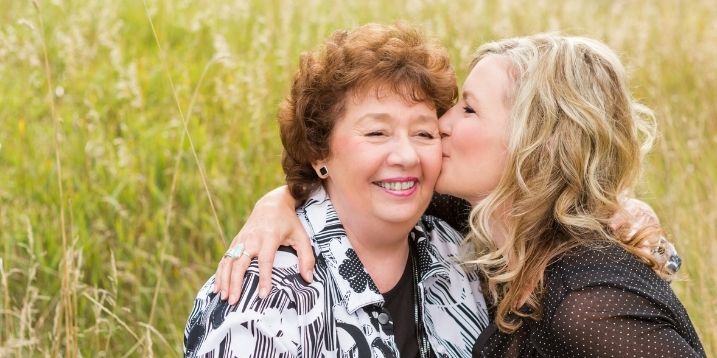
As a lawyer, Jeni had always known the importance of advance care planning. A cancer diagnosis only reaffirmed the need to plan ahead.
Jeni made sure she wrote a detailed advance care directive (ACD) to clarify her treatment and care preferences. She shared this with her family and appointed her daughter, Bridgette as her substitute decision-maker. However, when Jeni experienced a life-threatening medical event after surgery, it became clear to her that one substitute decision-maker was not enough.
While Jeni would not choose to relive the frightening medical emergency again, she is grateful that the event gave her the opportunity to test her advance care directive and fine tune it.
“I had appointed my daughter but after that experience and in discussion with other members of the family she decided she could not do it alone. The decision then was to appoint my son James as well.”
Both Bridgette and James are actively involved in Jeni’s ongoing cancer care. They attend appointments which helps them more deeply understand Jeni’s health circumstances, her treatment options and decision making.
Why planning matters
“I have witnessed many of my friends suffering a prolonged and medicalised deaths in hospital, where relatives have been unsure of their role or what their loved one wanted at the end of their life.
“I don’t want my children to have the burden of not being prepared when the time comes.”
Quality of life comes first
“I have promised my family that I will make every effort to live a rewarding life for as long as I am able to physically and mentally. It is my desire to include my family in my life to the end. I value life very much but to me this is not life at any cost, there is a quality to the life I value and want to live.
“We may not have an understanding for when the end is near and may have to rely on the advice and support of the treating team. To my children I say - do not be afraid to ask, you have a right to know, it is my right for you to be fully informed.”
Jeni’s plan speaks for her when she can't
Jeni is clear that her advance care directive will only come in to play once she is no longer capable of communicating her wishes.
“I would like to remain conscious as long as is possible and I would want to participate in all decisions that are being made in relation to my care. Though I have involved my family and treating team in my care and appreciate their opinion and input, the value of individual choice is paramount here.
"If I should lose consciousness, then the person responsible would take over."
Planning for a good death
For Jeni, a ‘good death’ is peaceful, with minimal distress and suffering for herself and loved ones. She also hopes for time to say her goodbyes. She has some pretty specific instructions for her family.
“It is my wish to die at home. I want my bed in the alcove where I can feel the warmth of the morning sun. I want the bed to be positioned so I am able to see the passing parade outside. I want to be able hear the rattle of the trams as they jangle by and be reassured that the life continues outside.
“The noise and clatter of the world outside my window has given me much pleasure over the years, it will not bother me.
“I instructed my son where I want my bed to be when I die, it’s my favourite spot in the house, it’s where I sit and read in the morning sun.”
Jeni stresses the importance of having frank and clear discussions. Had they not openly discussed the details, her son James commented that he would otherwise have kept her in a quiet, dark bedroom.
When plans change
“My wish to die at home would be conditional on my family being able to manage me dying at home and I leave the final decision to them.
"My wish is to spend my last days surrounded by my family. I want my children supported during this time by only those people who celebrated and shared my life and have stories to share.”
Helping others advocate for themselves
Despite her health challenges, Jeni continues to advocate for advance care planning. She gives community talks on the subject and encourages others to take active control of their future healthcare.
“The taboo subjects of ageing, death and dying needs to be brought out into the open. We all want to know about how and when we are going to die. The subject of ageing, needs to be a discussion every family has on a regular basis.”